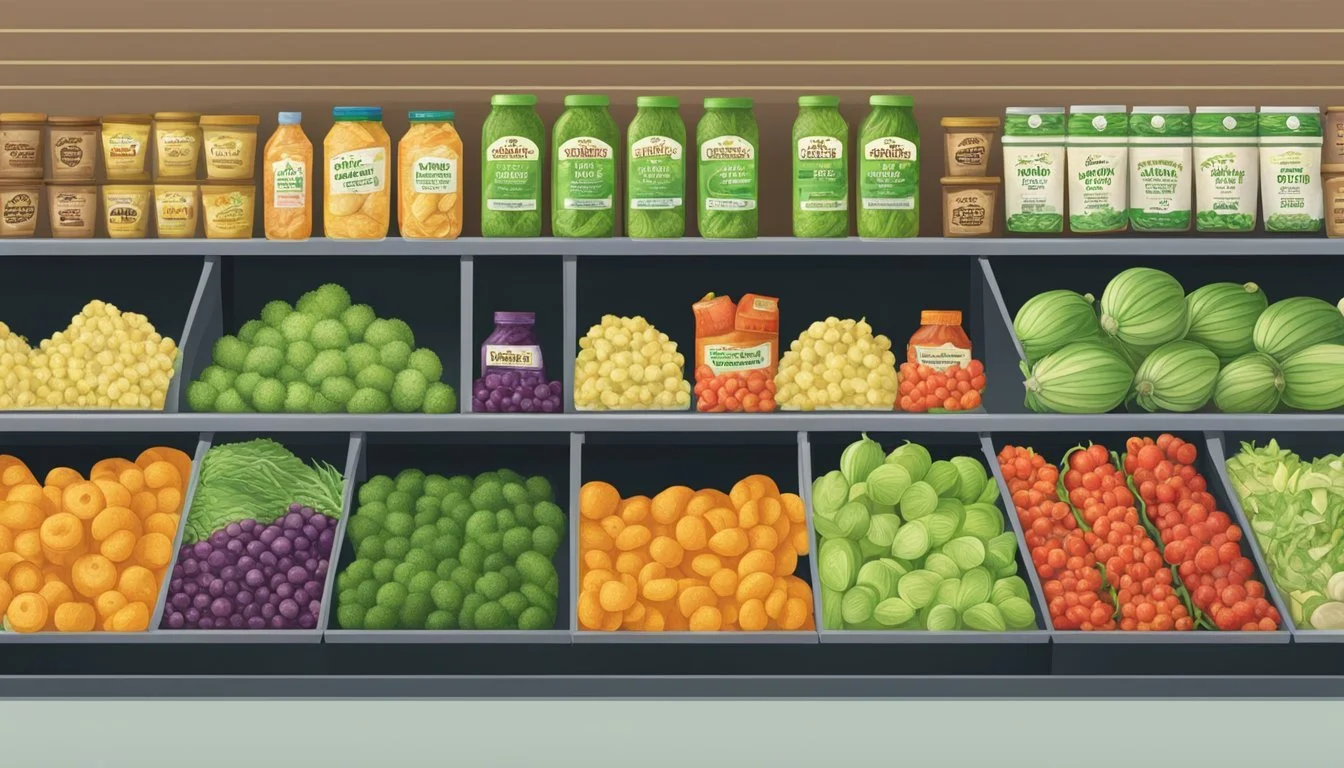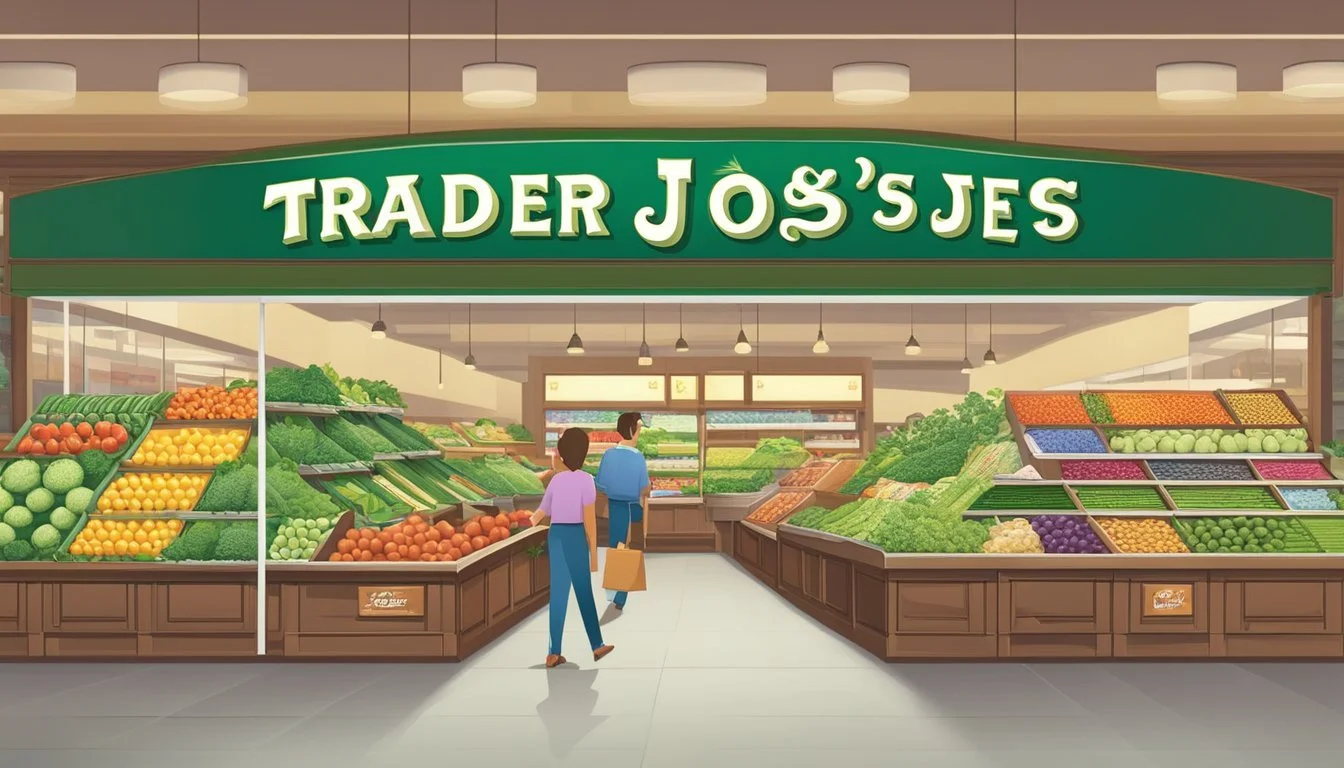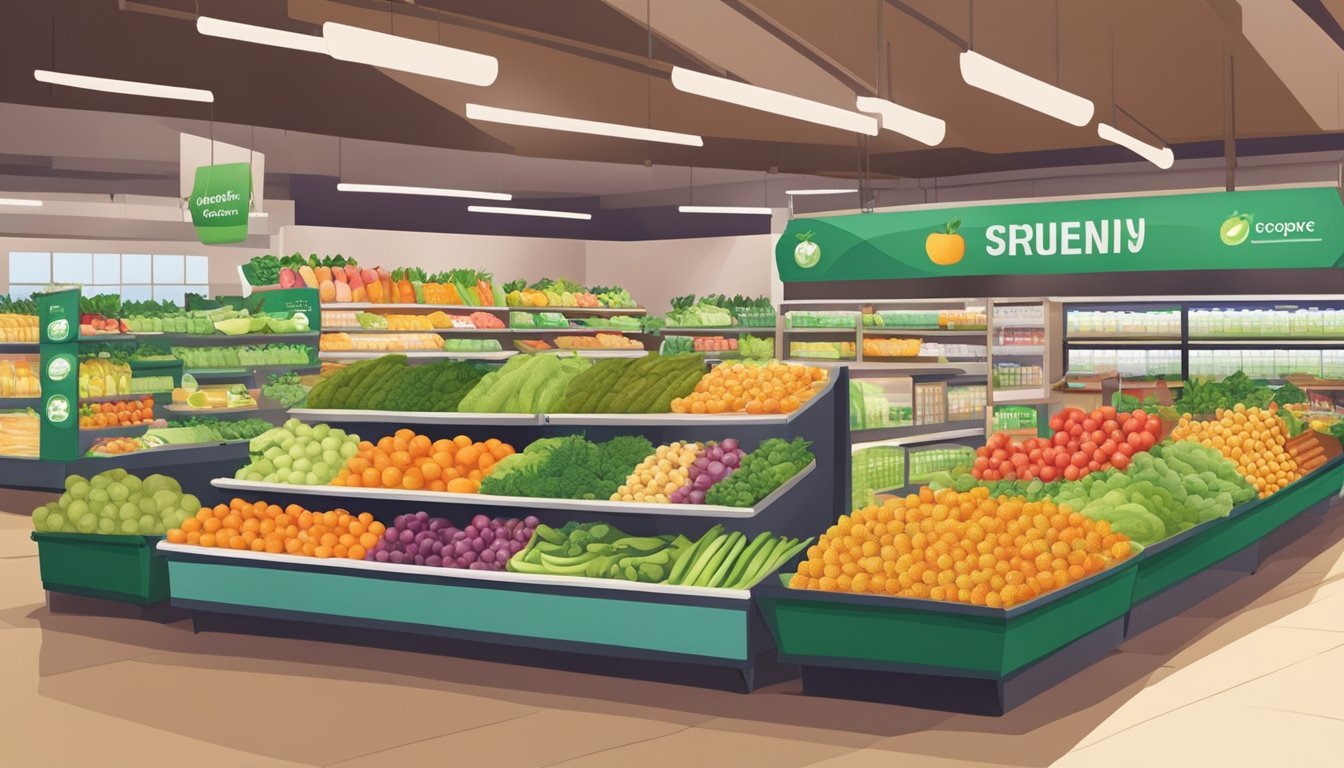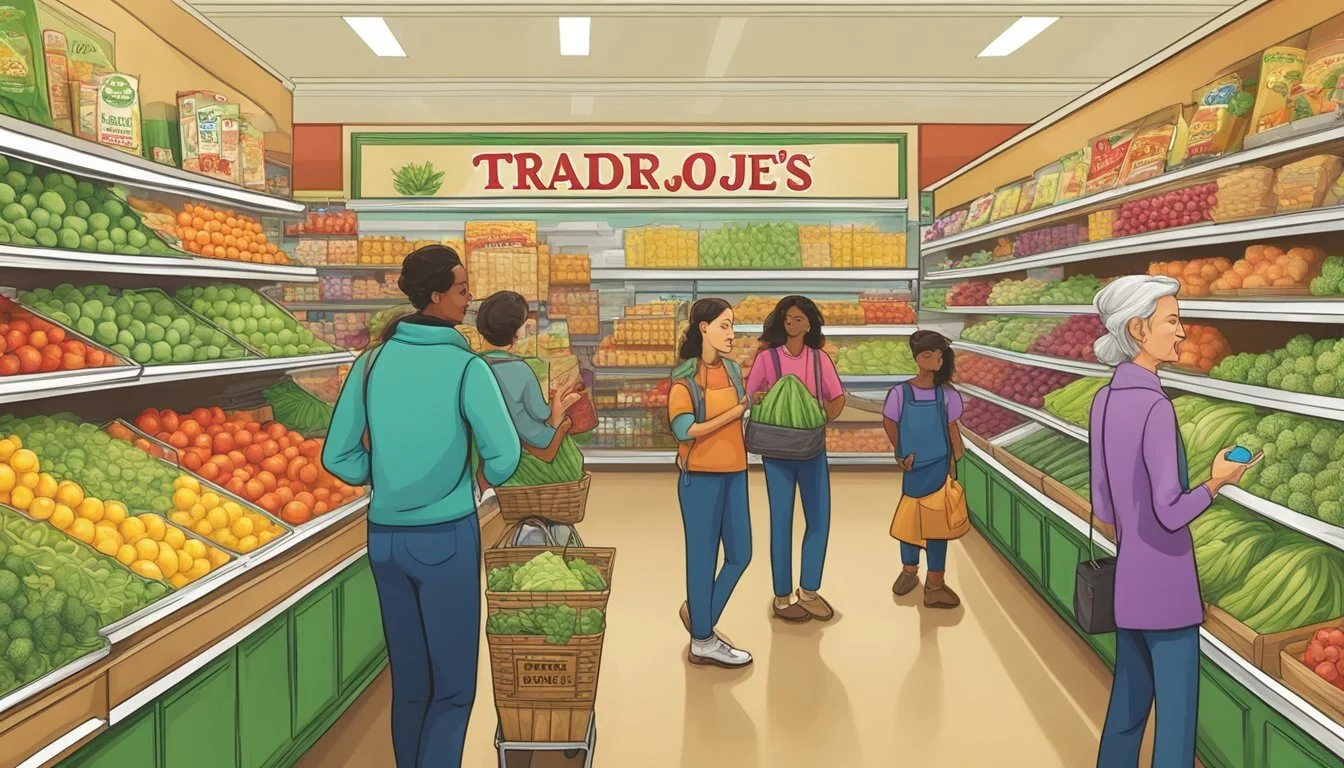Is Trader Joe's Cheaper Than Sprouts?
Comparing Grocery Store Prices
Part of Our Grocery Store Guide with Details on Trader Joe's Prices and Sprouts Farmers Market Prices
When it comes to choosing a supermarket for grocery shopping, the price is often one of the most crucial factors for consumers. Trader Joe's and Sprouts are two popular stores that focus on offering natural and organic products, each with its own dedicated customer base. While both stores aim at providing a healthier range of products, their pricing strategies differ.
Trader Joe's has earned a reputation for its cost-effective pricing model. Across various product categories, this supermarket tends to be less expensive when compared to Sprouts Farmers Market. While Sprouts may advertise select discounted items, a general survey of both stores’ inventory usually reveals that Trader Joe's offers lower prices on a consistent basis.
This is not subjective analysis but rather reflective of consistent market observations. Customers looking to shop for a wide selection of organic, specialty, or artisanal goods might find themselves torn between these two grocery stores, but for those prioritizing budget, Trader Joe's appears to be the more wallet-friendly option.
Price Comparison Overview
When comparing the prices between Trader Joe's and Sprouts Farmers Market, consumers often find that Trader Joe's tends to offer lower prices overall. With its streamlined inventory, Trader Joe's presents a selection that balances both quality and affordability. Looking closely, Trader Joe's price tags frequently undercut those at Sprouts, furnishing customers with savings on a variety of items.
Sprouts, however, is not without its own financial advantages. The store periodically features deals with rock-bottom prices, potentially leading to significant savings for those who shop these sales. Although these deals are appealing, they are specialized and may not extend across the wider range of products found in the store.
Trader Joe's: Known for a consistent approach to pricing, making it overall a more affordable option.
Sprouts: Offers select deals that may lead to greater savings but generally maintains higher prices on most items.
It is worth noting that Sprouts boasts an extensive range of products, including a variety of organic and locally sourced produce. This breadth may contribute to the pricing differences observed.
On common staples, such as eggs and milk, Sprouts can offer more competitive sales prices. Comparatively, Trader Joe's consistently keeps everyday low prices across a wider array of grocery items.
In summary, while both stores have their respective sales and deals, Trader Joe's commonly provides the more affordable prices on their products, whereas Sprouts selectively offers lower-cost options.
Product Selection and Variety
When assessing the product selection and variety at Trader Joe's and Sprouts, consumers will find distinct differences. Trader Joe's is known for its curated selection that emphasizes unique and gourmet products. They tend to offer a multitude of private label goods, which are often exclusive to their stores. Trader Joe's focuses on quality and distinctive offerings, rather than a wide range.
Sprouts, on the other hand, provides a larger selection of products across various categories. It especially shines in its array of fresh produce, including organic and locally sourced options. Shoppers looking for natural and organic products will find Sprouts' shelves well-stocked with items that are minimally processed and largely free from artificial flavors, colors, preservatives, and synthetic ingredients.
Aspect Trader Joe's Sprouts Private Label Extensive brand selection Less emphasis Organic Produce Moderate selection Wide range of options Product Variety Curated, unique items Extensive across categories
Shoppers at Sprouts also benefit from an in-house butcher and bakery, making it a one-stop shop for fresh meats, seafood, and baked goods. Both grocery store chains cater to health-conscious consumers, but Sprouts takes the lead with its broad range of fruits and vegetables.
In conclusion, while both stores address similar markets, those looking for a comprehensive shopping experience with a focus on natural and organic products may prefer Sprouts for its variety. Contrastingly, Trader Joe’s caters to those who appreciate specialty items and a unique selection.
Quality of Goods and Organic Offerings
Trader Joe's and Sprouts both cater to a health-conscious demographic, emphasizing the sale of organic and natural products. Trader Joe's has a reputation for its well-curated selection of private-label goods, including a variety of organic foods. A segment of their inventory consists of unique offerings such as organic, non-GMO products that are free from artificial colors and flavors. Their organic produce section, though more limited than some competitors, focuses on quality and affordability.
In contrast, Sprouts Farmers Market is known for a broader assortment of fresh produce, including an expansive organic section. They specialize in fresh, natural, and organic groceries incorporated into a farmers market setting. The emphasis is on bulk and all-natural foods, with a considerable selection of vitamins and supplements.
When discussing fresh produce and healthy food choices, both stores have a commitment to offering high-quality and fresh options. However, customers may find that Sprouts provides a more extensive range of organic produce compared to Trader Joe's, aligning with their market identity as a farmers market.
Organic Options:
Trader Joe's: Selective but affordable organic choices.
Sprouts: Wider organic variety influenced by farmers market style.
Freshness:
Both stores prioritize fresh products with a focus on healthy, natural foods.
Sprouts' commitment to an "all-natural" ethos is seen in the larger scope of its inventory, which extends beyond food to include other organic lifestyle products. Trader Joe's, while perhaps not as extensive, consistently delivers quality and value in its own right.
Store Brands and Private Labels
When comparing Trader Joe's and Sprouts Farmers Market, one notable difference is their approach to store brands and private label products. Trader Joe's is known for its private label products, which constitute a large portion of the inventory. These items are often priced lower than their brand name counterparts, providing cost-saving opportunities for consumers. The store’s strategy revolves around offering unique and quality products under its own branding, which typically means fewer brand name products on the shelves, but potentially more savings due to the absence of a third-party brand premium.
Sprouts Farmers Market, on the other hand, also offers a substantial range of private label products. They feature more than 2,400 items under their private brand, catering to consumers looking for alternatives to brand name goods. These private label products span various categories, from groceries to personal care items.
Comparison Table:
Aspect Trader Joe’s Sprouts Farmers Market Private Label Focus High (majority of stock) Moderate (significant presence) Cost Generally lower than brand names Often less than brand names Variety Less variety in brand name products Greater variety, including organics Label Approach Unique products under store branding Wide private label product selection
Both stores have leveraged their private labels to appeal to shoppers looking for quality at a competitive price. In this context, Trader Joe’s private labels are a cornerstone of its business model, designed to offer cost-effectiveness and a curated shopping experience. By managing their own private labels, both Trader Joe’s and Sprouts can exercise greater control over product cost, which often translates to lower prices for the consumer.
Specialty Departments
When comparing Trader Joe's and Sprouts Farmers Market in terms of specialty departments, one should consider the selection and pricing of products like fresh and organic produce, meats, bakery goods, and frozen and non-perishable items. Each department offers a range of healthy and specialty options that cater to various diets and preferences.
Fresh Produce Section
Trader Joe's fresh produce section is known for its affordability, offering a selection of organic produce like spinach, broccoli, and apples. In contrast, Sprouts has a wider variety, including avocados, lemons, and bell peppers, with an emphasis on local and organic options.
Meat and Seafood Counter
The meat and seafood counter at Sprouts resembles a traditional butcher shop with a vast selection of fresh meat, including turkey and specialty cuts. Trader Joe's, however, offers mainly pre-packaged meats, still focusing on quality but with slightly less variety than Sprouts.
Bakery and Prepared Foods
Sprouts has many bakery and prepared food items suitable for those looking for convenience without compromising on health. Trader Joe's counters with its selection of unique and globally inspired prepared meals, often seen as a go-to for easy-to-prepare and eclectic options.
Frozen and Non-Perishable Goods
In the realm of frozen food and cereals, Trader Joe's typically has a more cost-effective lineup, including a diverse range of beverages and health-focused frozen meals. Sprouts offers competitively priced options, with a somewhat broader selection which may include more gluten-free choices.
Bulk Foods and Special Diets
Sprouts shines in its bulk section, featuring a variety of bulk foods, from nuts to grains, often benefiting those purchasing larger quantities or with specific dietary needs. Trader Joe's lacks a traditional bulk section but offers a range of products including gluten-free and other healthy foods in packaged form.
Sales, Promotions, and Discounts
Trader Joe's and Sprouts Farmers Market are both known for their unique approaches to sales and promotions, which directly impact the savings customers can expect. Trader Joe's operates under a day-to-day low pricing model, ensuring that their prices are consistently competitive without the typical weekly sales. Instead of traditional discounts, they pass savings onto customers by selling a high volume of private-label products.
Sprouts, on the other hand, features regular weekly sales and discounts, highlighted in their store flyers and promotional materials. They focus on specific "rock-bottom" deals, drawing in customers with the promise of significant savings on select items each week.
Trader Joe's:
Consistent pricing: No weekly sales; everyday low prices.
Private-label savings: Majority of inventory is private-label for consistent savings.
Sprouts:
Weekly sales: Regular sales with special discounts.
Promotional discounts: Targeted deals featured prominently.
Both stores occasionally offer in-store promotions that can result in added discounts on various products. However, when it comes to overall savings, Trader Joe's tends to have lower prices across their entire product range, while Sprouts' discounts are more item-specific.
Store Sales Strategy Typical Discounts Trader Joe's Low everyday pricing Private-label products Sprouts Weekly sales and promotions Weekly deals on specific items
Consumers can benefit from both strategies but may find that Trader Joe’s straightforward pricing model simplifies the shopping experience, potentially leading to greater overall savings without the need to track sales and discounts.
Customer Experience and Service
At Trader Joe's, customers are greeted with a distinctive store layout that prioritizes easy navigation and fosters a personable shopping atmosphere. They provide a friendly ambiance that many shoppers find appealing. Trader Joe's is particularly noted for its return policy, which underscores their commitment to customer satisfaction. If a customer is not happy with a product, they can return it.
In contrast, Sprouts boasts excellent customer service, with a focus on providing a wide range of organic products. Sprouts changes its sales prices weekly, which can be a draw for bargain-seeking customers. The store's layout emphasizes their natural and organic range, catering to health-conscious consumers.
When it comes to shopping experience, both stores have cultivated a reputation for attentive and helpful service, ensuring that customers feel supported during their visit.
Store Ambiance:
Trader Joe's: Known for its unique, friendly, and easy-to-navigate layout.
Sprouts: Focuses on a health-centric shopping environment with an organic emphasis.
Customer Service Highlights:
Trader Joe's: Allows product returns for dissatisfied customers, promoting trust.
Sprouts: Offers consistent customer service with a niche in organic offerings.
Shoppers' preferences will vary based on the importance they place on the store's atmosphere, the organic product selection, and the flexibility of sales prices. Each store has tailored its service with the goal of creating a positive, lasting impression on their customers.
Comparison with Other Retailers
When comparing Trader Joe's and Sprouts Farmers Market with other grocery retailers, it's essential to recognize each store's positioning within the market.
Whole Foods, known for its organic and high-quality offerings, is typically seen as a more premium option. Consequently, customers might find shopping at Whole Foods to be costlier than Trader Joe's.
Walmart and Target are massive retail chains that offer competitive pricing due to their scale, often making them more affordable options than specialty grocery chains. They focus heavily on a wide range of products, including groceries.
Amazon, with its acquisition of Whole Foods, entered the brick-and-mortar grocery space, but also offers grocery delivery through its online services, often at competitive prices due to its robust distribution network.
Safeway, as a traditional supermarket, aims to provide a variety of brands and products, often priced between Whole Foods and discount stores. Depending on the location and promotions, pricing at Safeway can be comparable to Trader Joe's.
Grocery store chains in general, such as Kroger or Albertsons, may offer varied pricing but typically align closer to Safeway in offering a balance between affordability and variety.
Here's a simplified comparison based on average pricing:
Retailer Pricing Compared to Trader Joe's Product Selection Whole Foods More Expensive Organic & High-Quality Walmart Less Expensive Wide Range, Less Specialty Target Comparable/Varies Wide Range, Some Specialty Amazon Comparable/Varies Convenient Delivery Safeway Comparable/Varies Wide Selection Other Chains (e.g., Kroger) Comparable/Varies Balanced Variety
It's important to note that while pricing and selection are critical factors, shoppers also consider other attributes such as store atmosphere, location convenience, and product exclusivity, which may influence their choice of retailer.
Regional Availability and Accessibility
Trader Joe's and Sprouts Farmers Market both operate primarily in the United States and appeal to consumers seeking accessibility to health-conscious supermarket options. As of the knowledge cutoff in 2023, Trader Joe's has a significant presence in California, with numerous locations across the state. This prominence reflects the supermarket's commitment to expanding access to its products.
Sprouts, similarly, has a wide distribution of stores in California, facilitating convenient access for shoppers in various regions. Both supermarkets are situated in urban and suburban neighborhoods, aligning with their objective to serve as accessible food sources.
Trader Joe's implements the Neighborhood Shares Program, which aims to donate 100% of products that are not sold but remain consumable. This program underscores their community commitment and enhances accessibility to quality food products for those in need.
The table below summarizes the store availability in California:
Supermarket Number of Stores in California Accessibility Features Trader Joe's High Expansive store network, Neighborhood Shares Sprouts Farmers Market High Wide regional spread
Both supermarkets optimize location strategies to ensure that shoppers in California have consistent and convenient access, ultimately contributing to their competitive positioning within the supermarket industry. They have successfully established themselves not only as food retailers but also as community-oriented spaces that prioritize the needs and health of their customers.
Shopping Strategies to Save Money
When seeking savings at discount grocery chains like Trader Joe's and Sprouts, shoppers may employ various strategies to ensure low prices and maximize affordability. Here are some pragmatic approaches:
Mid-Week Shopping: Visiting stores on a Tuesday or Wednesday can lead to savings, with fewer crowds and potential markdowns on perishable goods.
Compare Unit Prices: Carefully examine unit prices. For example, Trader Joe's bacon is priced at $0.55/oz, while the same item at Sprouts may cost $0.90/oz.
Store Brands: Opting for Trader Joe's store-brand products, which are often less expensive than national brands, can contribute to significant savings.
Specialty Items: For items like bananas and specialty cheeses, Trader Joe's maintains consistently affordable pricing, often below market rates.
Utilize the following list for key items that generally offer the best savings:
Bananas: Renowned for their stable low price.
Eggs and Milk: Comparison shopping can show Sprouts often has better prices.
Frozen Foods: Trader Joe's has a diverse selection at low costs.
Wine and Specialty Cheeses: Known for quality and value at Trader Joe's.
By incorporating these tactics, consumers can effectively navigate the competitive pricing landscape between Trader Joe's and Sprouts, ensuring they get the most for their money.
Demographic and Market Considerations
When comparing the pricing strategies of Trader Joe's and Sprouts, it is essential to consider the demographics they target. Both stores cater to consumers who prioritize healthy eating options but from slightly different market segments.
Trader Joe's has built its reputation on providing a variety of unique and often globally sourced products at affordable prices. Its customers typically consist of individuals and families looking for value in their grocery purchases without compromising on quality. Trader Joe's streamlined inventory, which includes a considerable amount of private-label items, allows for competitive pricing that appeals to budget-conscious shoppers.
On the other hand, Sprouts Farmers Market tends to attract consumers who seek an extensive selection of fresh produce, including organic and locally sourced options. Sprouts' focus on freshness and healthful offerings justifies their higher price points. Their customers are often willing to pay a premium for the assurance of quality and the availability of specialty items that may not be found in traditional supermarkets.
The two retailers also differ in their geographical presence. Trader Joe's, with outlets predominantly in metropolitan areas, draws in city dwellers who may choose convenience and speed in their shopping experiences. Sprouts, while also present in urban settings, has made significant inroads into suburban communities where consumers might have more spacious households and larger family sizes, leading to different purchasing habits.
In summary, consumers' shopping preferences at Trader Joe's and Sprouts are influenced by factors such as product uniqueness, price sensitivity, quality of produce, and location. Each store's pricing reflects their understanding of their customer base and their respective positions in the market.
Environmental and Health Consciousness
When consumers consider the environmental and health impact of their grocery choices, they often look to retailers who prioritize organic and healthy food options. Both Trader Joe's and Sprouts meet this demand, albeit in their own unique ways.
Trader Joe’s is known for its curated selection, with numerous organic options across various food categories. This includes organic fruits, vegetables, and pantry staples. Its commitment to organic products caters to the environmentally conscious shopper who places value on the quality and sourcing of their food.
Sprouts, on the other hand, emphasizes its role as a full-service health food store, offering a broader range of healthy foods. Their offerings are not limited to just organic produce, but extend to a wide variety of organic foods, including dairy, meat, and non-food items like toiletries and baby care products. For consumers specifically seeking out organic and healthy food options, Sprouts often presents a larger inventory.
In their operations, both Trader Joe's and Sprouts demonstrate an awareness of sustainability and health trends, actively seeking to provide a selection that aligns with a health-conscious and environmentally minded customer base. Each store approaches this goal through a different strategy—Trader Joe’s with a focus on selected high-quality goods, and Sprouts with a comprehensive range of all-natural products. The difference in approach may impact pricing, but each retailer maintains a strong commitment to supporting consumers' desire for healthier and more sustainable lifestyles.
Convenience and Shopping Experience
When consumers step into a Trader Joe's or Sprouts, they are met with distinct shopping experiences shaped by store layout, ambiance, and brand philosophy. Trader Joe's prides itself on a layout that facilitates easy navigation, often seen as more intimate and personal. Their use of hand-drawn aisle markers and quirky product descriptions adds to a friendly atmosphere.
Trader Joe's:
Ease of Navigation: Compact store layout designed for quick trips.
Branding: Exclusive store brands that often inspire a cult following.
Ambiance: Energetic and friendly environment with a neighborhood feel.
In contrast, Sprouts Farmers Market offers an open and airy space reminiscent of traditional farmers markets. They focus on natural and organic products, presented in a straightforward, market-style layout that emphasizes fresh produce.
Sprouts:
Market-Style Layout: A spacious arrangement that mimics an outdoor market.
Focus on Freshness: Prioritization of organic and natural food selections.
Clean Presentation: Crisp and uncluttered display aiding product findability.
While Trader Joe's caters to shoppers looking for unique and private-label items, Sprouts appeals to those who prioritize organic and health-focused goods. Both provide their own version of convenience based on what their target customers value most in a shopping experience.
Regarding the entity ShopRite, which was mentioned in the instructions but not in the search results, one can infer that as a larger grocery chain, ShopRite offers its own conveniences, typically in the form of a wide selection of brands and products. The shopping experience might lean towards the conventional, with well-organized aisles and a variety of national and store brands.
Loyalty Programs and Community Engagement
Trader Joe's differentiates itself in the market by not offering a typical loyalty program. They focus on providing consistently low prices without the use of sales, coupons, or loyalty rewards. The strategy is to alleviate the customers from the hassle of chasing deals, which can be a relief for those preferring straightforward pricing. This approach has contributed to Trader Joe's strong cult following, as customers often feel confident that they are getting good value without needing to participate in a loyalty program.
In contrast, Sprouts Farmers Market has a loyalty program that offers deals and discounts to repeat customers. It incentivizes repeat shopping and can appeal to customers who enjoy engaging with a store through a rewards system. It's seen as a mechanism for Sprouts to encourage customer loyalty and repeat business.
Trader Joe's Community Efforts:
Neighborhood Shares Program: Trader Joe's engages with the local community by donating 100% of products that are not sold but still fit for consumption to food banks and local non-profits.
Local Impact: Their community-centric model emphasizes local engagement and support.
Sprouts Farmers Market also participates in community engagement efforts, although the specifics were not detailed in the search results provided.
The absence of a loyalty program at Trader Joe's seems to resonate well with their customers, helping to form a dedicated customer base. Meanwhile, the presence of a loyalty program at Sprouts can attract those looking for additional savings opportunities through repeated purchases. Each retailer has identified a unique way to engage with their customers and community, catering to different consumer preferences.
Final Thoughts on Price and Value
When comparing Trader Joe's and Sprouts in terms of pricing, it's evident that value goes beyond the price tag. Trader Joe’s is renowned for offering reasonable prices across a diverse range of products, which is beneficial for those aiming to save without sacrificing quality.
Sprouts, on the other hand, tends to feature a variety of weekly deals that can translate into significant savings for the attentive shopper. They have a widespread reputation for a broad selection of organic products, potentially providing greater value for those prioritizing organic goods.
Prices at both stores can fluctuate based on location, promotions, and seasonal availability. Shoppers may find that Sprouts occasionally offers lower prices on items like eggs and milk.
Item Trader Joe's Sprouts Organic Food Higher Price Lower Price Unique Items Available Limited Range Dairy/Eggs Variable Often Cheaper
It's important to note that while Sprouts may offer better deals on specific items, Trader Joe’s excels in curating a selection that balances cost and quality, making it a one-stop shop for many consumers. This strategic selection often results in overall savings in terms of time and money spent shopping.
Ultimately, the decision between which store offers better value is contingent upon individual shopping preferences and priorities. Consumers may benefit from frequenting both establishments to maximize the value of their groceries against their expectations and needs.














